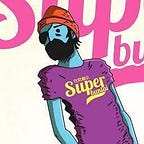Allyship
At the beginning of 2021, if someone told me that I need to practice allyship, I would have to double-check with them to understand if it means the same thing to both of us.
The term ‘Ally’ has long been associated with war and politics in my mind. But during a recent project during the winter of 2021, I discovered that it can be a mindset as well.
The anti-oppression network describes Allyship as a lifelong process of building relationships based on trust, consistency, and accountability with marginalized individuals and/or groups of people.
Even though I’ve created work addressing women’s welfare in the past, most notably in the form of a film which I, along with my creative teammates, conceptualized and wrote for UN Women, I have to admit that my motivations were not guided by a sense of allyship in this new sense of the word. For me, at the time, it was about creating work that would creatively and sincerely represent the experiences of a marginalized group, in order to provoke thought and action. While the film was well-received, upon interaction with a few female audience members at the launch event and hearing them open up about their plight, I realised that I only understood a fraction of what women go through. As a man, I questioned whether I will ever be able to truly develop the empathy to fully experience the female condition. I was painfully aware at that moment, of the privilege I was born into just by being a cisgender man.
I learnt about Allyship during one of our units in the MA Service Design program. It was mentioned by our tutors in context to our project where we were working with vulnerable families in Camden. At the time when I was first introduced to it, it felt revolutionary and at the same time so simple that it should be common sense — two characteristics that the best ideas of the world share. Allyship helped give me a new perspective — that as long as I can acknowledge my privilege, I can perhaps use it to help address issues of those less fortunate than me.
So when we were tasked with choosing squads to take on different topics. After a little deliberation, I realised that I wanted to put my energies towards Women’s Rights and Safety. At the time, I was clear this wasn’t going to be the topic of my final project proposal. But now that I was equipped with a new sense of what I can achieve with Allyship and a diverse and driven set of teammates who could guide me through this, I was intent on giving it a go.
It was also a matter of ethics to me as a designer and a professional. It would be disingenuine if I don’t commit to doing my best in a squad just because it's not part of my major project proposal topic. For me, this was not about the ends as much as it was about exercising allyship sincerely and learning from the experience.
As we go into defining our activities and planning our topical events, I shall look for ways to use my experience with communication and connections to help further meaningful discourse on women’s safety.
